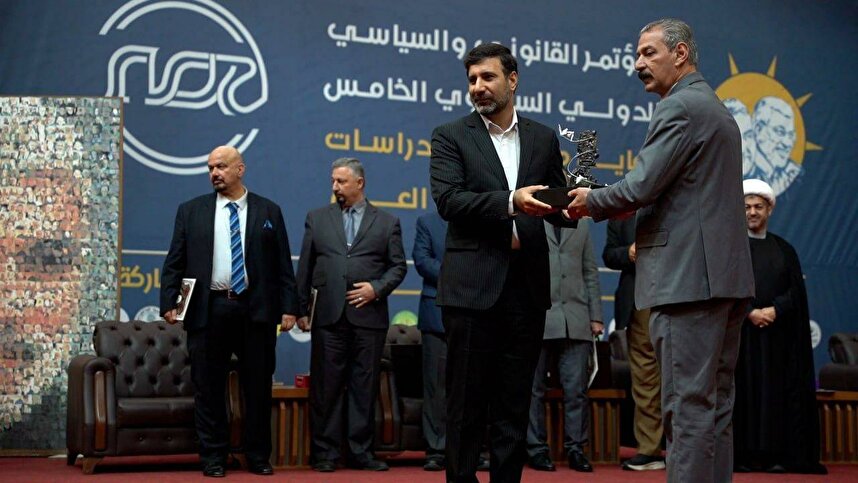- Constitutional Council spokesman visits Tehran Times anniversary exhibition
- ‘A Historic Day and A Valuable Legacy for Resistance’
- Spokesperson criticizes international community's inaction over US, Israel’s atrocities
- Right to resistance a legitimate struggle for liberation from domination: Tahan Nazif
Spokesperson criticizes international community's inaction over US, Israel’s atrocities
Hadi Tahan Nazif emphasized that the assassination of General Soleimani, a figure who dedicated four decades of his life to combating terrorism, by the United States while he was on an official visit to Iraq, blatantly discredited any claims by the US of fighting terrorism.

He stressed that this act, along with the assassination of Abu Mahdi al-Muhandis, posed a severe threat to regional and international peace and security.
General Soleimani, commander of the Quds Force of Iran’s Islamic Revolution Guards Corps (IRGC), and Abu Mahdi al-Muhandis, the second-in-command of Iraq’s Popular Mobilization Units (PMU), and their companions were assassinated in a US drone strike authorized by then-US President Donald Trump near the Iraqi capital Baghdad’s International Airport on January 3, 2020. Both commanders were highly revered across West Asia because of their key role in fighting the Daesh Takfiri terrorist group in the region, particularly in Iraq and Syria.
"Despite numerous UN Security Council resolutions that deem all terrorist acts as criminal and unjustifiable, the assassination of General Soleimani and al-Muhandis clearly demonstrates the need to pursue and prosecute the perpetrators of this terrorist act," Dr. Nazif said.
He further added that the Islamic Republic of Iran is determined to pursue legal action against the perpetrators of this crime at all levels, both domestically and internationally. He also suggested the formation of a joint tribunal between Iran and Iraq to address this issue.
Tahan Nazif also criticized the international community's silence on the US's violation of the UN Charter and other international legal documents, saying that this inaction has not only weakened the global order but also contributed to instability and violence in the region and beyond.
He pointed to the recent crimes committed by the Israeli regime in Gaza as a clear example of the consequences of this silence. Tahan Nazif condemned the international community's failure to uphold its responsibility in maintaining international peace and security, which he believes has challenged the credibility of international institutions and fundamental principles of human rights.
Nazif also highlighted the assassination of resistance leaders such as Sayyed Hassan Nasrallah in Lebanon and Ismail Haniyeh in Tehran, as well as other brutal crimes committed by the Israeli regime in Gaza, as further examples of this dangerous trend in the international system.
In his comments, Nazif also addressed Israeli attacks on Gaza in 2024, describing them as a "horrific catastrophe and unprecedented genocide" that violated all fundamental principles of international humanitarian law.
He emphasized the deprivation of basic necessities such as water, food, and medicine for the people of Gaza, as well as the forced displacement, ethnic cleansing, and the targeting of civilian infrastructure, including schools, hospitals, and residential areas.
Tahan Nazif concluded his statement by condemning the Israeli regime's actions, which he said have been carried out with the "green light" from the US, and called for accountability for these crimes against humanity.